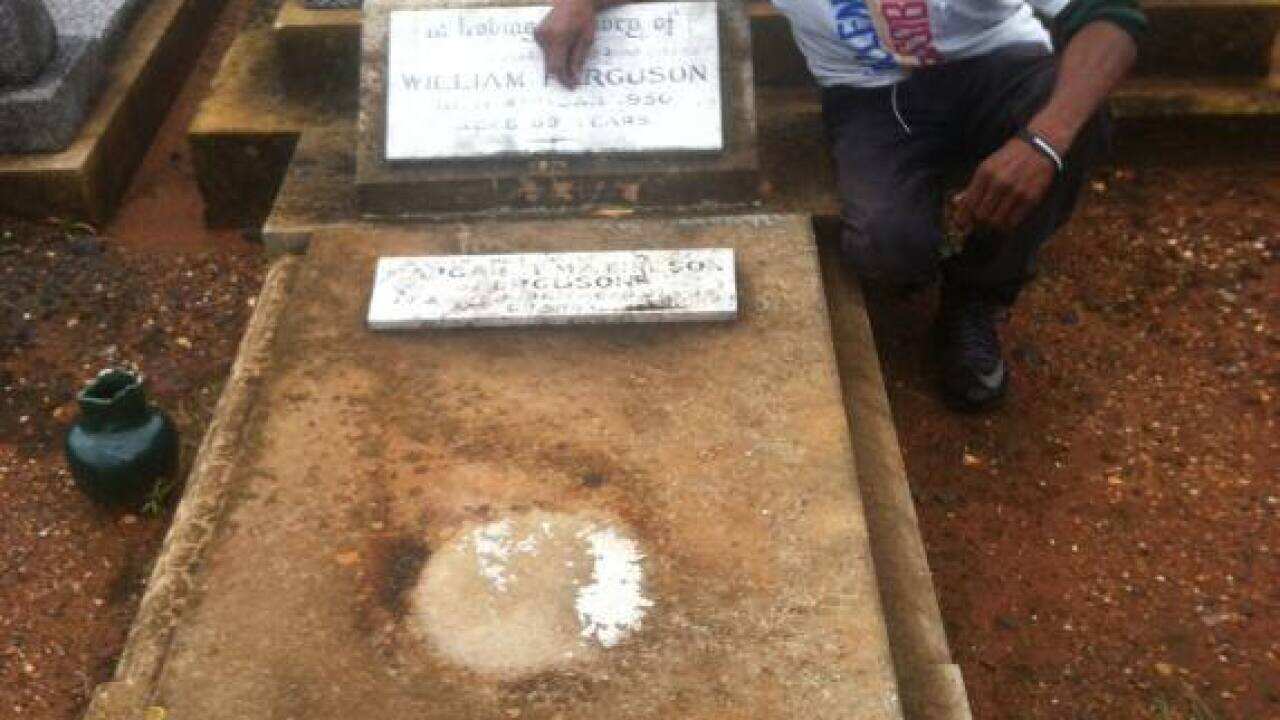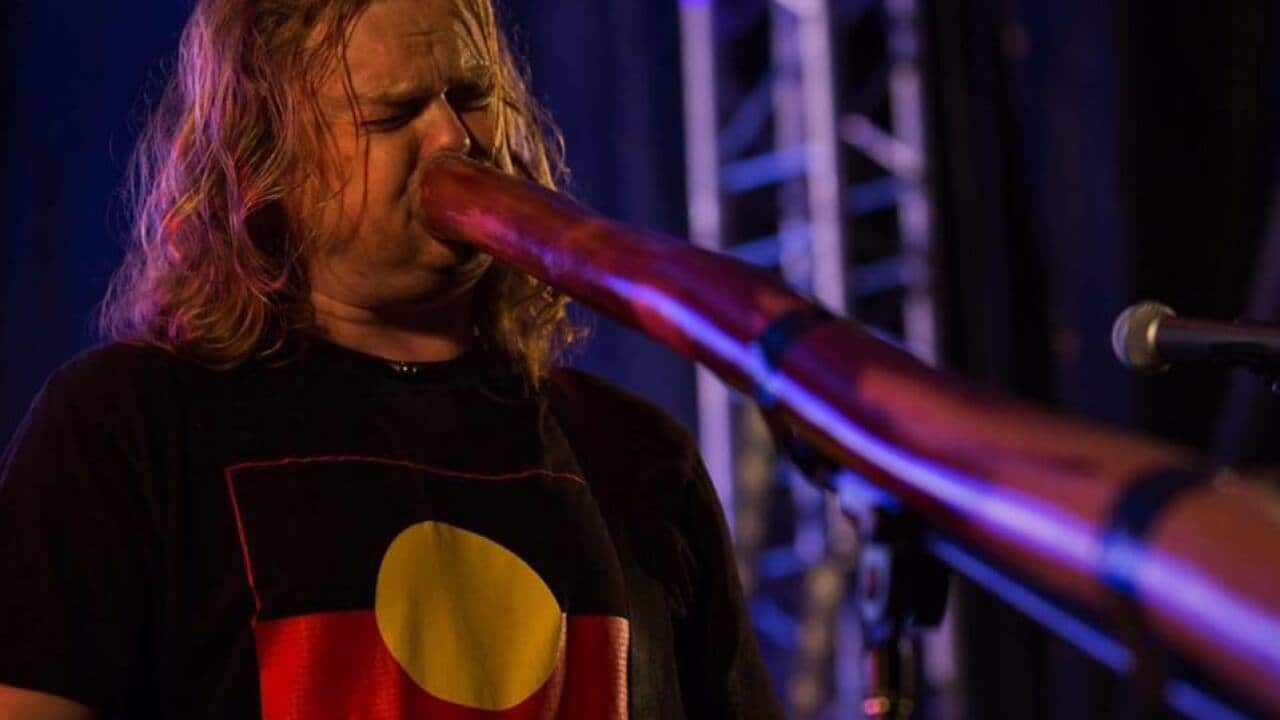When you hear Mabo, Martin or Mandela - do you know the stories behind the names?
It wasn’t until a youth worker (and MC), was discussing defying moments in history amongst a group of children, when he realised almost none of them knew of the strong black people who shaped the battle for equality across the globe.
“I work with a lot of underprivileged kids. We were talking about history and none of them knew who Eddie Mabo was. That really shocked me because this is such an important person in Australian history,” Kagiso said.
“They also didn’t know who Martin Luther King was, or Nelson Mendala… It’s a shame because these are kids, are almost adults and have access to knowledge in this technological age.”
This triggered a spark for Kagiso, who thought to blend his musical talent with power of knowledge and created his latest single, which features NIMAs New Talent of the Year 2015 award winner, .
“Why not make a single that sparks recognition, emotion and conversation for the next generation. It might just make a kid google what the hell these rappers are talking about.”
Escaping Apartheid

Source: NITV News
“My parents came to Australia in 1987 to flee the South African Apartheid. My father was part of the so America wouldn’t take us because my dad was considered a terrorist. My grandfather was accused of terrorist activities and was sent to prison for fighting apartheid and for fighting for equality and people's civil rights.” For a family of refugees, starting a new life in a foreign country was a challenge. At the age of 23, KG’s mother, Hilda Mmalephoso Seima, who is from Botswana, became the breadwinner of the family because in 1987 it was difficult for his father, Phillip Seretse Ratlhagane, a black refugee to get a job - despite being educated.
For a family of refugees, starting a new life in a foreign country was a challenge. At the age of 23, KG’s mother, Hilda Mmalephoso Seima, who is from Botswana, became the breadwinner of the family because in 1987 it was difficult for his father, Phillip Seretse Ratlhagane, a black refugee to get a job - despite being educated.

KG and his father, a well educated man, in South Africa, where he was part of the ANC Party and considered a terrorist for fighting apartheid. Source: NITV News
“Growing up in the 90s in Canberra I was the only ethnic kid in class."
Hilda decided to pursue her quest for knowledge and received a Bachelor’s degree in business management and a Master’s degree in community health promotion when Phillip finally got a job.

Kagiso and his mother, who received a bachelor’s degree in business management and a master’s degree in community health promotion as a single mum in her 20's. Source: NITV News
Lost identity
The patriotism of Phillip eventually weighed on KG’s parents’ relationships. He had a passion to rebuild South Africa and make a difference in his home town, but for his mother - Australia was the land of opportunity and her new home.
As a child, KG struggled with discipline; was disengaged in school, feeling othered, and the break-down of his parents relationship impacted him at home.
“Growing up in the 90’s in Canberra I was the only ethnic kid in class. I didn’t know how to deal with it so I’d end up getting into fights. I was constantly moving schools and built up a barrier against basically anyone who didn’t look like me – so teachers and students became ‘the others’ to me.”
KG explained that a big part of rebelling was due to losing his sense of identity.
“I just wanted to belong to a group but because I wasn’t wearing the newest NIKE’s no one wanted to talk to me.” Music became his safe haven and a chance to escape reality and problems, but it wasn’t until high school where he discovered like-minded people.
Music became his safe haven and a chance to escape reality and problems, but it wasn’t until high school where he discovered like-minded people.

Source: NITV News
“I remember looking around at kids with different ethnic backgrounds, kids that looked like me and I had a sense of relief. We formed a friendship and were all able to collaborate our stories and music together,” KG explained.
“The school enabled us to create a space for dance, music and art. A lot of other schools I went to didn’t provide that support.
That was a key moment in KG’s life where he knew he could have a positive impact on young people’s lives.
“I really want to help kids because positive role models can be the difference between going down the life of crime.”
Conversation Inspiration
Ten years ago KG was making music in his bedroom and was discovered by a record producer who helped him and his music partner move from Canberra to Melbourne. However, KG says surviving as a full-time artist in Australia was a challenge.
“We cultivated our music and learnt the ropes of the industry. We would play alongside with some of the best artists in the country and then go home and cook mi-goring noodles because that’s all we could scrape for dinner.”
Listening to artists such as Briggs, Birdz, A.B Original shaped KG’s music and enabled him to focus on the issues people in his country face.
“If you’re not part of the conversation then you’re part of the problem,” he explained.
“My songs are a real reflection of who I am. Political music is what identifies me. If no one ever hears another song from me I’m happy to have put out Mabo, Martin and Mendela – that’s the song that has meaning for a lifetime.”
Music with meaning
Alongside KG Koorie rapper, Phillip “Philly” Murray, who scored Indigenous New Talent of the year award have teamed up for the , a music tour which aims to raise funds for legal aid for Aboriginal youth.
Together with Philly, the deadly duo spit out aggressively powerful lyrics that battle issues surrounding systemic racism, intergenerational trauma, loss of culture but also the pride to keep tradition, ceremony and customs alive.
KG’s music sparks uncomfortable conversations about race in Australia, but he believes it’s necessary to have that fight for equality in our current climate.
“I don’t believe Australia is a racist country but there are certain things that go on here that people aren’t aware of. Music is a great way to give people stories, feeling and a platform.”
The lyrics are ruthless, raw and real – everything KG said is necessary for people to understand the context of history, loss of culture and intergenerational trauma.
“Down under no one gives a fuck about Mabo
They rather call you a nigga or an abo
Claiming that we getting all these reparation
Yet they turn a blind eye to the devastation.
So many different nations, generations lost.
Endless suffering and pain, you can’t count the cost.
Cultures burnt down, ashes left on the ground,
Somehow we rise up still holding the crown.”
“I had a special connection with an Elder who told me she was persecuted for speaking her Aboriginal language in her own community. Her and her sisters were locked up and lost their culture,” KG explained.
“When my lyrics talk about rise up and holding the crown - that shows despite being oppressed and targeted, she now works as a linguistic officer teaching the next generation Aboriginal languages and staying true to culture.”
The music clip also features Canberra-based Gamilaroi graffiti artist and , Gage Fernando, as well as group of culturally diverse young people. KG says the ones with the most fire in their belly got selected for their clip.
"Being a youth worker I'm able to see the kids that are passionate about world leaders, education, and equality, which is why I asked those particular ones for help on my music video. I knew how much it would mean to them, to be able to see themselves in this music clip and also proving to all other young ones that they are important, they have a voice and to use it because it will be heard.”
Watch the clip here:
KG & Philly will be headlining the line-up of (with all sales from door tickets will go to the National Justice Project, who fight to create a just and equal country for all people). Tonight, Friday 3 November at The Chippo Hotel, Sydney at 7.30pm.
RECOMMENDED ARTICLES:

Townsville celebrates Mabo Day amid calls for a national public holiday




